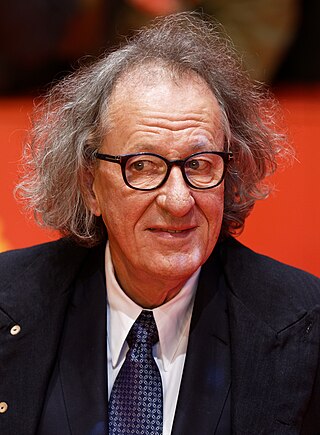
Geoffrey Roy Rush is an Australian actor. Known for his eccentric leading roles across both stage and screen, he has received numerous accolades, including an Academy Award, a Primetime Emmy Award and a Tony Award, making him the only Australian to achieve the Triple Crown of Acting, in addition to three BAFTA Awards, two Golden Globe Awards, and four Screen Actors Guild Awards. Rush is the founding president of the Australian Academy of Cinema and Television Arts and was named the 2012 Australian of the Year.

David Keith Williamson is an Australian playwright. He has also written screenplays and teleplays.
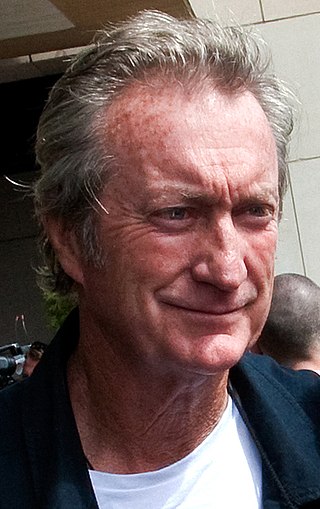
Bryan Neathway Brown AM is an Australian actor. He has performed in over eighty film and television projects since the late 1970s, both in his native Australia and abroad. Notable films include Breaker Morant (1980), Give My Regards to Broad Street (1984), F/X (1986), Tai-Pan (1986), Cocktail (1988), Gorillas in the Mist (1988), F/X2 (1991), Along Came Polly (2004), Australia (2008), Kill Me Three Times (2014) and Gods of Egypt (2016). He was nominated for a Golden Globe Award and an Emmy Award for his performance in the television miniseries The Thorn Birds (1983).
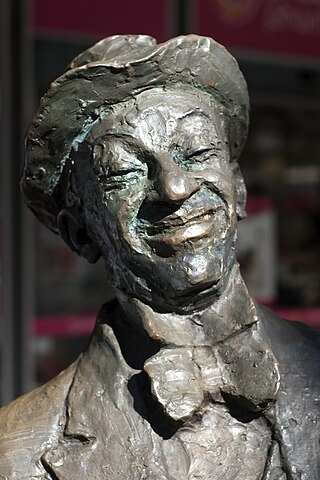
Roy Rene was an Australian comedian and vaudevillian. As the bawdy character Mo McCackie, Rene was one of the most well-known and successful Australian comedians of the early 20th century, and the local answer to Charlie Chaplin.
Efftee Studios was an early Australian film and theatre production studio, established by F.W. Thring in 1930. It existed until Thring's death in 1935. Initially Efftee Films was based in Melbourne and used optical sound equipment imported from the US.

Theatre of Australia refers to the history of the live performing arts in Australia: performed, written or produced by Australians.

James Cassius Williamson was an American actor and later Australia's foremost impresario, founding the J. C. Williamson's theatrical and production company.

George Musgrove was an English-born Australian theatre producer.
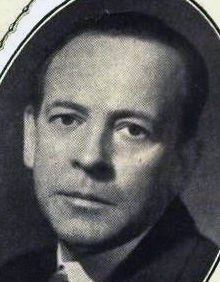
Frank Harvey was a British-born actor, producer, and writer, best known for his work in Australia.
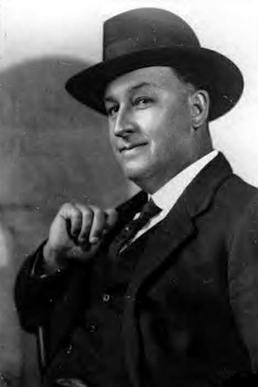
Raymond Longford was a prolific Australian film director, writer, producer, and actor during the silent era. Longford was a major director of the silent film era of the Australian cinema. He formed a production team with Lottie Lyell. His contributions to Australian cinema with his ongoing collaborations with Lyell, including The Sentimental Bloke (1919) and The Blue Mountains Mystery (1921), prompted the Australian Film Institute's AFI Raymond Longford Award, inaugurated in 1968, to be named in his honour.
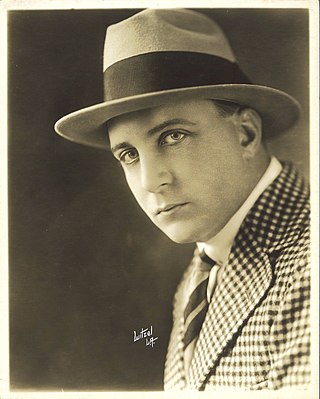
Arthur Shirley was an Australian actor, writer, producer, and director of theatre and film. He experienced some success as a film actor in Hollywood between 1914 and 1920.
Prehistoric Hayseeds is a 1923 Australian film comedy that was written, produced, and directed by Beaumont Smith. It is the sixth in his series about the rural family the Hayseeds and concerns their discovery of a lost tribe.

Captain Midnight, the Bush King is a 1911 Australian silent Western film about the fictitious bushranger Captain Midnight. It was the directorial debut of actor Alfred Rolfe. The film is based on the play of same name by W. J. Lincoln and Alfred Dampier. Captain Midnight, the Bush King is now considered lost.
Robert Brough was born in England to a family prominent in literature and the theatre. He had a notable career as actor and manager in Australia.

Minnie Everett was an Australian ballet-mistress and producer, closely associated with the J. C. Williamson's company. She was the world's first woman producer of Gilbert and Sullivan operettas.
Ethel Morrison, nicknamed "Morry" or "Molly" and described as a "large lady with a large voice", was a contralto singer from New Zealand who began her career in Gilbert and Sullivan operas and Edwardian musical comedies in England. She later acted mostly in Australia and was noted for her performances in domineering roles.
Henry Osborne Jacobs was an English musician best known as an accompanist, arranger and conductor for Ada Reeve, then settled in Australia, where he had a substantial career.
Viola Wilson was a Scottish singer, the leading soprano for J. C. Williamson's Gilbert and Sullivan company in Australia during World War II. She married the widowed theatre businessman Frank S. Tait, later Sir Frank.
Lance Fairfax was a singer and actor from New Zealand, classed as a light baritone, who had a substantial career in Australia.
Marie Alice Bremner was an Australian soprano, remembered for performances in Gilbert and Sullivan operas. She became a favorite performer in musical comedy, first on stage, then revivals and variety shows on broadcast radio. She was popular with producers for her ability to take on key roles at a moment's notice and draw "rave" reviews. Her accompanist husband Ewart Chapple became a senior executive with the Australian Broadcasting Commission.











